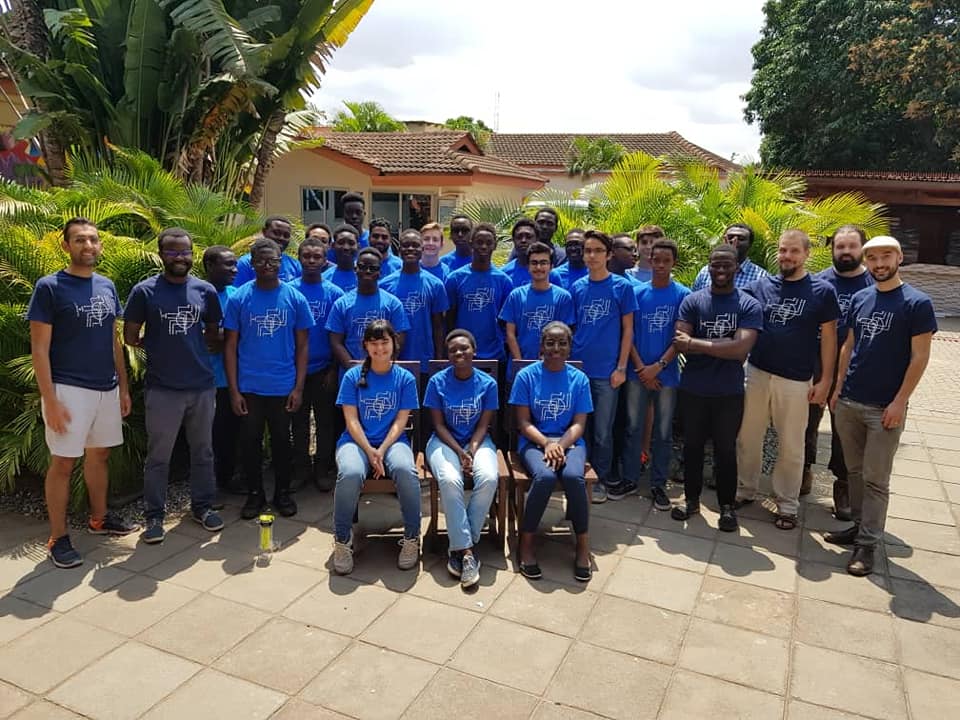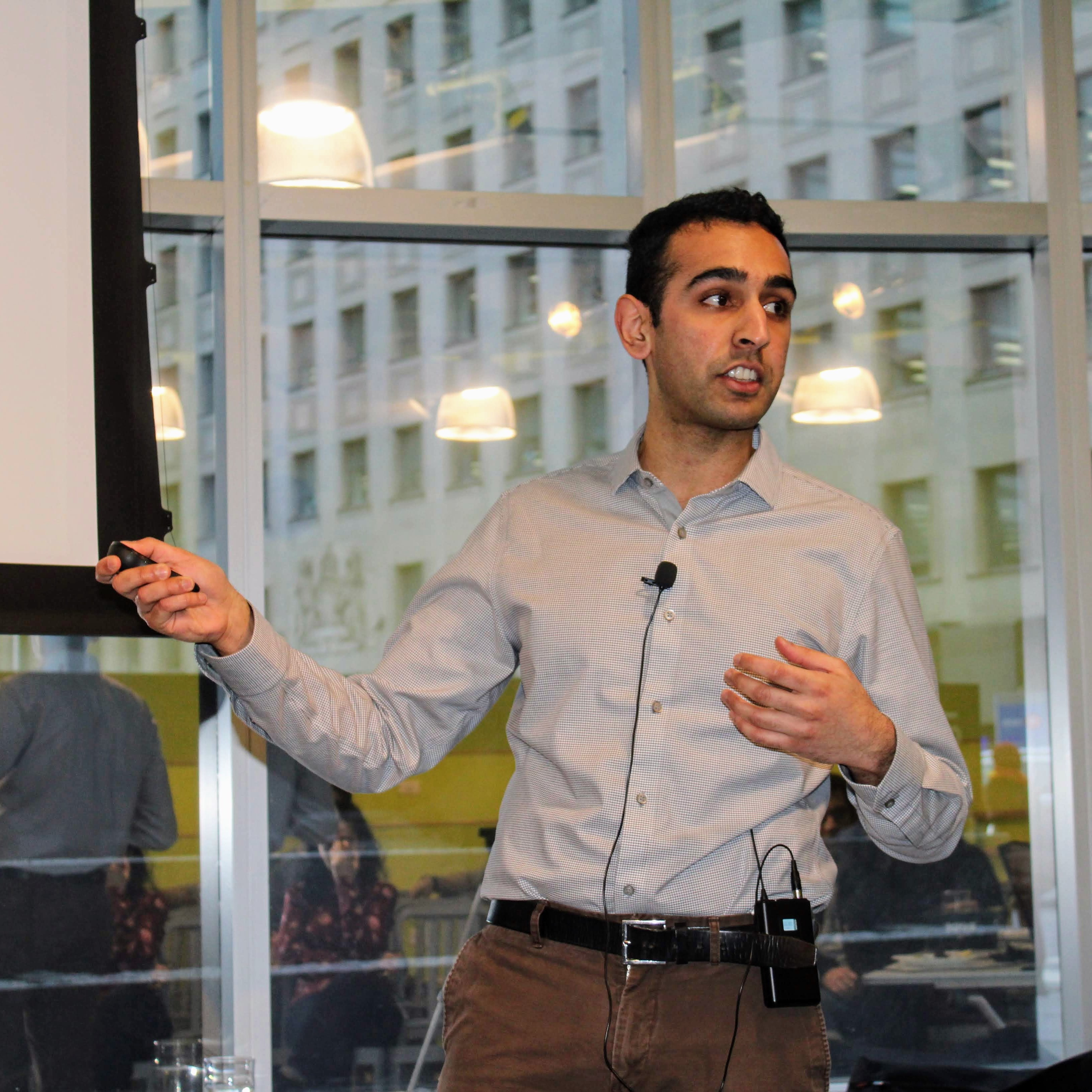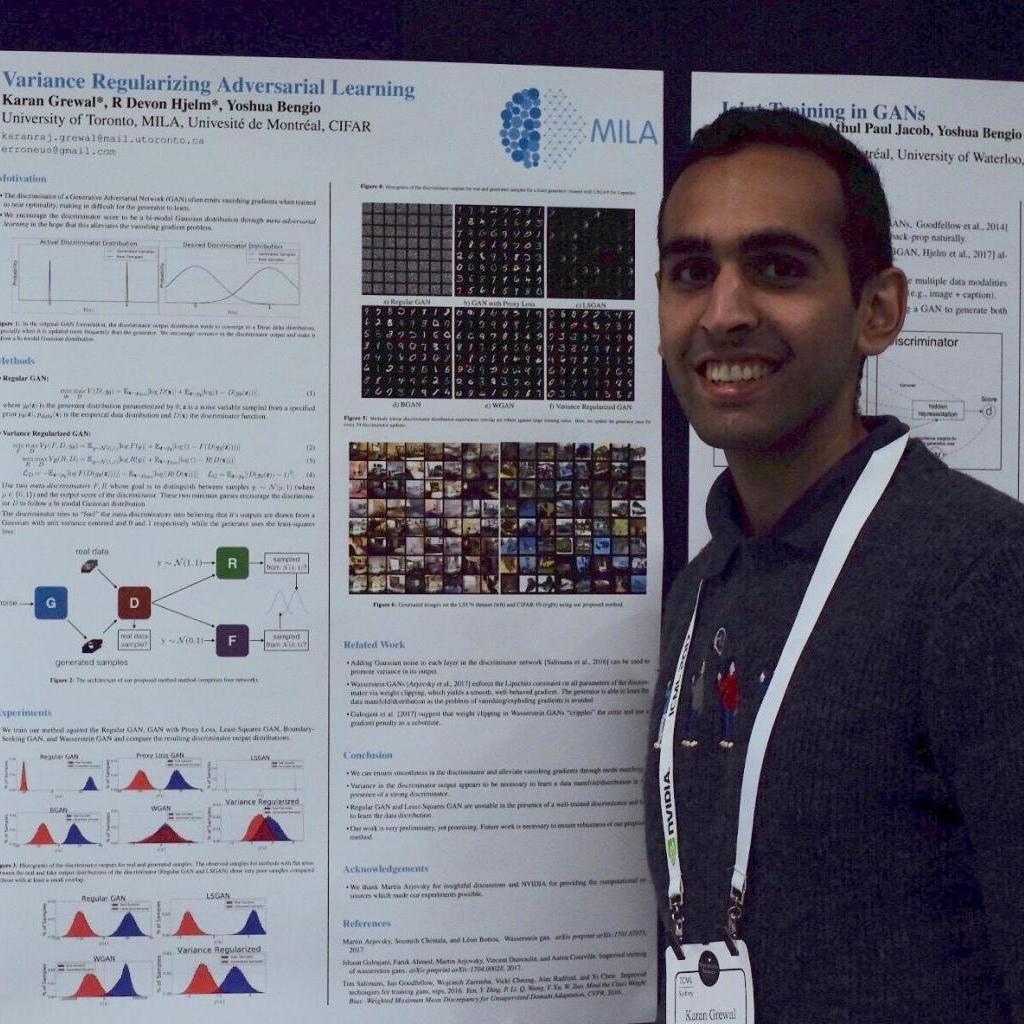karan.r.grewal@gmail.com
Google Scholar
About Me
Hi there! I'm a Researcher & Engineer based in San Francisco. At present, I develop Language Models for Apple's products to improve user experience on iPhones, iPads, MacBooks, and more! Prior to this, I translated ideas from neuroscience into computer algorithms at Numenta. Even before that, I dabbled with synthetic image generation at Mila before it was cool.
Check out my recent episode on the Data Science at Home podcast about neuroscience, computer algorithms, and their interplay. (Also available on Spotify and Apple Podcasts.)
Published Work
-
Avoiding Catastrophe: Active Dendrites Enable Multi-Task Learning in Dynamic Environments
Abhiram Iyer, Karan Grewal, Akash Velu, Lucas O. Souza, Jeremy Forest, Subutai Ahmad.
[paper] Frontiers in Neurorobotics, 2022.
-
Exploring the Structure of Human Adjective Representations
Karan Grewal, Joshua C. Peterson, Bill Thompson, Thomas L. Griffiths.
[paper] NeurIPS 2021 workshop on Shared Visual Representations in Human & Machine Intelligence.
-
Chaining Algorithms and Historical Adjective Extension
Karan Grewal, Yang Xu.
[paper] Computational Approaches to Semantic Change, 2021.
-
Chaining and Historical Adjective Extension
Karan Grewal, Yang Xu.
[paper] CogSci 2020.
-
Learning Deep Representations by Mutual Information Estimation and Maximization
R Devon Hjelm, Alex Fedorov, Samuel Lavoie, Karan Grewal, Phil Bachman, Adam Trischler, Yoshua Bengio.
[paper] ICLR 2019.
-
Variance Regularizing Adversarial Learning
Karan Grewal, R Devon Hjelm, Yoshua Bengio.
[paper] ICML 2017 workshop on Implicit Generative Models.
Outreach

The MISE Foundation aims to expose high school students in Ghana to the latest developments in STEM fields. At one of their recent summer programs, I served as a research mentor and led a group of students through a project on designing algorithms to generate human face sketches. We also had long discussions about the ethics of such technology as its uses can be highly controversial. I hope my efforts will motivate these students to become leaders in these fields and transform the global R&D landscape.


